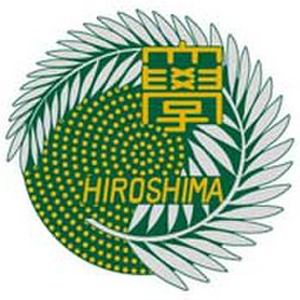 501-600
501-600 


Hiroshima University aims to be a world-class hub of education and research, to nurture highly skilled human resources who will contribute to their communities with excellence, and to continue the advancement of science and technology through expansion and development of cutting-edge research. Based on the institution’s founding principle, which states “a single unified university, free and pursuing peace in the world”, Hiroshima University fulfills its roles as a national university with the following five guiding principles: 1.The Pursuit of Peace - to develop intellectual attitudes which always seek peaceful solutions to the problems affecting society and the world at large; 2.The Creation of New Forms of Knowledge - to evolve new systems of study which surpass existing frontiers of knowledge and encourage intellectual innovation; 3.The Nurturing of Well-Rounded Human Beings - to train graduates with well-developed and multifaceted personalities by means of an education which has breadth as well as depth; 4.Collaboration with the Local, Regional, and International Community - to create a university with a strong international awareness which can efficiently disseminate knowledge on a worldwide scale, in collaboration with local and regional communities; 5.Continuous Self-Development - to maintain a constant readiness to re-examine established ways of acting, and a constant openness to improvement and innovation.
 501-600
501-600 
| Subject | Rank |
|---|---|
Dentistry & Oral Sciences | 51-75 |
Transportation Science & Technology | 151-200 |
Earth Sciences | 201-300 |
Civil Engineering | 201-300 |
Physics | 301-400 |
Chemistry | 401-500 |
Pharmacy & Pharmaceutical Sciences | 401-500 |
| Undergraduate Programs |
|---|
Area Studies |
Art Education |
Art Education |
Behavioral Sciences |
Biological Science |
British, American, and European Languages, Literatures, and Linguistics |
Chemistry |
Earth and Planetary Systems Science |
Educational Studies |
Educational Studies |
Elementary School Teacher Education |
Elementary School Teacher Education |
English Language and Culture Education |
English Language and Culture Education |
Geography, Archaeology, and Cultural Properties |
Health and Sports Sciences Education |
Health and Sports Sciences Education |
History |
Human Life Sciences Education |
Human Life Sciences Education |
Humanities and The Study of Culture |
Integrated Physical Sciences |
Japanese and Chinese Language and Literature |
Japanese Language and Culture Education |
Japanese Language and Culture Education |
Language and Culture |
Life Sciences |
Mathematical and Information Sciences |
Mathematics |
Mathematics Education |
Mathematics Education |
Music Culture Education |
Music Culture Education |
Natural Environmental Sciences |
Philosophy, Thought, and Cultural Study |
Physical Science |
Psychology |
Psychology |
Science Education |
Science Education |
Social Studies Education |
Social Studies Education |
Socio-Cultural Studies |
Special Education |
Special Support Education |
Sport Sciences |
Teaching Japanese As A Second Language |
Teaching Japanese As A Second Language |
Technology and Information Education |
Technology and Information Education |
| Graduate Programs |
|---|
Applied Chemistry |
Architecture |
Biological Science |
British, American, and European Languages, Literatures, and Linguistics |
Chemical Engineering |
Chemistry |
Civil and Environmental Engineering |
Earth and Planetary Systems Science |
Educational Studies |
Geography, Archaeology, and Cultural Properties |
Higher Education Development |
History |
Information Engineering |
Japanese and Chinese Language and Literature |
Language and Culture Education |
Learning Science |
Lifelong Activities Education |
Mathematical and Life Sciences |
Mathematics |
Mechanical Science and Engineering |
Mechanical System Engineering |
Philosophy, Thought, and Cultural Study |
Physical Science |
Psychology |
Science, Technology and Social Studies Education |
Special Education |
System Cybernetics |
Transportation and Environmental Systems |